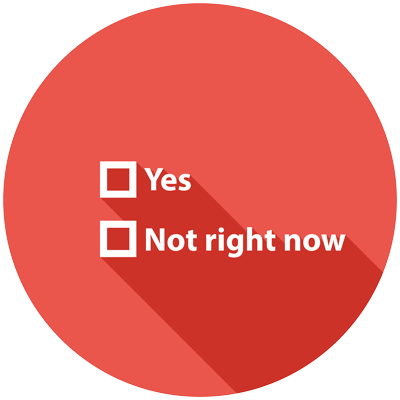Get ready. You’re about to discover a simple to use scientifically grounded technique that has increased conversions by 40% to as much as 125% percent.
It’s not about button color, shape or size. It’s not about adding extra pieces of persuasive information. It’s not about clever page design. It’s simply restructuring the way people can accept or decline your call to action.
Posted in Archive, Conversion
published on Friday, 02 December 2016
Governments and health organizations are spending billions of dollars in order to stimulate you and me to put healthier foods on our plates. But take one look at the world outside to face living and breathing proof that these strategies are far from successful. And in case you’re not a big fan of anecdotal evidence; the statistics also show that obesity is at an all-time high worldwide.
Posted in Archive, Conversion
published on Saturday, 29 October 2016
In modern day neuroscience, it’s easy to get confused over all the different neuromarketing techniques out there. While virtually all of the techniques used in the field can be valuable to marketing, it’s good to understand the difference between them and how they work.
In this article, we’ll have a closer look at five regularly used neuromarketing techniques to see how they work and in what kind of context it’s most suited: eye tracking, brain imaging (EEG and fMRI), facial encoding, sensory marketing and psychological techniques.
Posted in Neuromarketing Fundamentals, Archive
published on Monday, 17 October 2016
Here’s a sales principle that’s surprising yet beautifully straightforward:
As a seller, offer the consumer a personal discount that’s small enough to seem legitimate; then before they accept the discounted price, ask for a small favour.
Posted in Archive, Conversion
published on Thursday, 29 September 2016
Chances are you’ve come across the term neuromarketing many times by now. Maybe you heard about people conducting research to analyze what makes an advertisement successful, or that some companies like to use techniques to make you subconsciously buy a bunch of things you don’t need.
Let’s take some time to focus on what neuromarketing really is, how it’s used by companies, and the impact it has on the field of marketing. Neuromarketing as a term was first introduced in 2002, but interest in the human brain for marketing purposes was already present in 1900.
It was around this time that researchers working for companies like Coca Cola investigated neural activity and analyzed brain scans when consumers viewed advertisements or interacted with products.
The promise of having a look inside people’s brain to see what makes them buy was, and still is, a highly desired prospect for researchers and marketers alike. But what is neuromarketing exactly?
Posted in Neuromarketing Fundamentals, Archive
published on Monday, 12 September 2016



